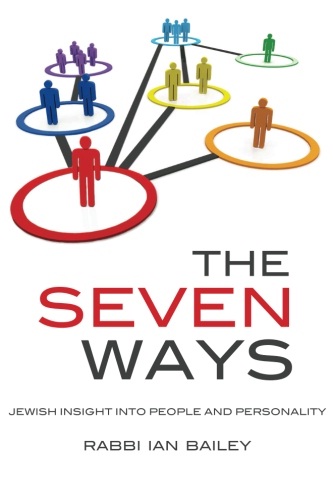How Giving Up Can Lead to Success
PDF Print for Shabbat Table! BeshalachWhen G-d leads Israel out of Egypt, he circumvents the land of the mighty Philistines, “…lest [Israel] reconsider when they see war, and return to Egypt.” (Ex. 13:17). Why did G-d not just make Israel into mighty warriors, so as to be able to traverse the land?
 Rambam[1] explains that G-d does not change human nature. In the same vein, it’s important to remember that we cannot do so, either. It is crucial to our daily living to accept people for who they are, then strategize on how to deal with them[2].
Rambam[1] explains that G-d does not change human nature. In the same vein, it’s important to remember that we cannot do so, either. It is crucial to our daily living to accept people for who they are, then strategize on how to deal with them[2].
I have received incredible feedback about The Seven Ways. The area in which I have heard the most dramatic breakthroughs and life improvements has been the settling of interpersonal differences, through such acceptance.
After decades of tension and bickering, sisters have taken off their boxing gloves; after years of one man trying to convince his father[3] of his side or another man trying to convince his coworker[4] of his ideas, they have each found satisfaction and have chosen more effective communication by using more indirect methods. After years of tension, one woman has been able to get through to her husband, because she began speaking his language[5]. A sweet youth has figured out that polite assertiveness[6] is the way to speak with his intrusive parents, not smile-filled avoidance[7].
[To purchase The Seven Ways and learn how to accept and deal with all kinds of people click here]
G-d doesn’t change human nature; we should also give up trying to do so.

IB
[1] Moreh Nevuchim 3:32
[2] ”Waiting for other people to change is like planning your future around winning the lottery.” Michael P. Nichols, PhD., who specializes in clinical psychology, family therapy, and couples dynamics.
[3] He was a thought out, rational, netzach-type, his father was a stubborn malchut. For definitions of the seven types, click here.
[4] He was a hod, his coworker had the middah (quality & skill set) of Malchut.
[5] He was a tiferet type, she was a later chesed. I also had a couple come to me recently, with a similar situation, where the wife was a hod and her husband was a tough yesod. This type of miscommunication happens from something I call personality projection. We tend to think that people think and act as we do. We try to communicate with them in a way that we would like to hear, and misunderstanding ensues. I have seen this psychological phenomenon in Jung’s writing, without a clear title (yet), but I first saw it in the story of Yosef and his brothers.
[6] I am developing a term for the type of communication that runs through most interpersonal conflict and is the prescription for most solutions; namely, that people need to stop avoiding important issues and directly speak to the person with whom they are having a problem. Through being polite and considerate, but assertively mentioning their point, people will be able to communicate about what they want, listen to others, and navigate both warm open people, and pushy selfish people. I think most nuggets of advice involve being polite or assertive, but, as we see from personality typing, there are many different types of people you are going to deal with! One-size-fits-all will not work, we must become versatile. I’m starting out with the term polite assertiveness, let me know if you think it is too generic or have another idea!
with! One-size-fits-all will not work, we must become versatile. I’m starting out with the term polite assertiveness, let me know if you think it is too generic or have another idea!
[7] In other words, as a hod type he figured that being nice and smiley would eventually make it so he would be able to get his parents to listen to him. Conflict will only cause fights! he believed. But polite assertiveness is the happy medium for what he needed. (Incidentally, I see exactly seven footnotes here. Coincidence? Probably!)
